Honoring the Greatest World Records In History; Michael Phelps Leads the Celebration
The fastest of all-time. It’s a special title to hold, and only a tiny percentage of athletes can make the claim. To own the label of world-record holder elevates an individual to a status that cannot be argued. Whether for an hour, days, months or years, world-record setters know no peer. They are – for a period – the best their event has seen.
Swimming World decided to look at the greatest world records in history. No, this is not a perfect science, and there will be objections from the dedicated readership. But the eight records featured are – plain and simple – spectacular in nature, and one longtime scribe’s picks for all-time recognition.
When selecting these records for inclusion, several factors were considered. They were:
• Duration of the world record.
• Historical significance and context.
• Was it a barrier-breaking mark?
• Gap to the opposition.
Ultimately, the women’s records covered a greater range of eras, while the men’s marks consisted of one ancient standard and three marks from modern times. Feel free to argue and suggest other options but know this: The following records are all special.
Women
Dawn Fraser – 100 Freestyle (1962) – 59.9
Dawn Fraser – Photo Courtesy: Dawn Fraser Collection
By the time Dawn Fraser established this world record, the Australian already held legendary status. She was a multi-time Olympic champion from the 1956 and 1960 Games and held the global standard in the 100 freestyle uninterrupted since 1956. But there was one more bar to clear on the road to another Olympic crown: Breaking the minute barrier.
Racing at the Aussie Trials for the 1962 British Empire and Commonwealth Games, Fraser produced a time of 59.9 for the 100 freestyle to become the first woman to dip under a minute. Her achievement arrived 40 years after Johnny Weissmuller became the first man to accomplish the feat. More, the effort further separated Fraser from the competition, as it took nearly two years for American Sharon Stouder to become the second member of the sub-minute club.
Mary T. Meagher – 200 Butterfly (1981) – 2:05.96
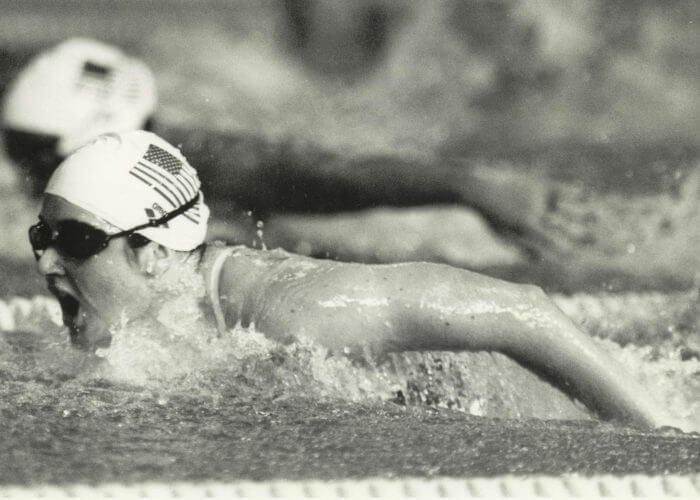
Photo Courtesy: Tony Duffy
When a performance still ranks as elite four decades after it was delivered, it is easy to recognize the swim as an all-time mark. And that is exactly what the legendary Mary T. Meagher brings to the conversation. This world record was produced at the 1981 United States National Championships and was a statement performance, as it arrived a year after Meagher was denied the chance to race at the 1980 Olympic Games in Moscow by President Jimmy Carter’s boycott.
So, how powerful was this mark? For starters, it was more than four seconds faster than the 2:10.44 that East Germany’s Ines Geissler clocked for gold at the 1980 Games. More, Meagher’s swim would have been good for fourth place at both the 2020 and 2024 Olympic Games.
Janet Evans – 400 Freestyle (1988) – 4:03.85
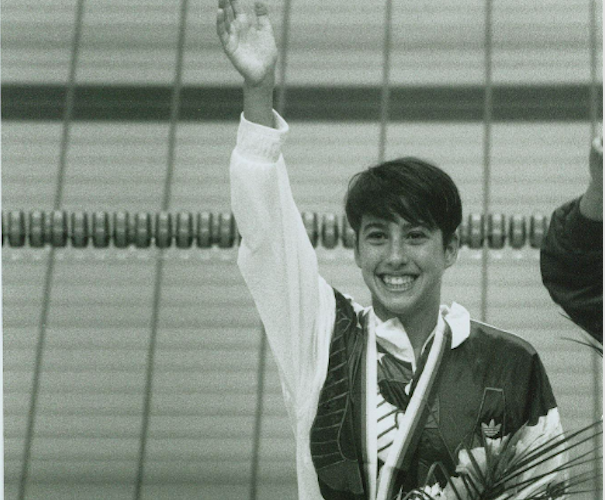
Janet Evans – Photo Courtesy: International Swimming Hall of Fame
Before Katie Ledecky emerged, Janet Evans was undisputedly recognized as the greatest distance swimmer in history. While her peak marks in the 800 freestyle and 1500 freestyle were considered, Evans earned inclusion on this list for the show she delivered in the 400 freestyle at the 1988 Olympic Games in Seoul. There, the American teenager stood up to the East German machine, which was powered by a systematic-doping program, and turned in a performance that would stand for nearly two decades.
Ahead of the race, Evans was expected to be in a battle with East Germany’s Heike Friedrich, and the race was tight through its midway point. After going out in 2:02.14 for the opening 200 meters, Evans was faster on the back half, clocking 2:01.71 for the closing four laps and a negative split. The product was a world record that would stand for 17-plus years. It wasn’t until Frenchwoman Laure Manaudou went 4:03.03 in 2006 that the record was taken from Evans.
Katie Ledecky – 800 Freestyle (2016) – 8:04.79
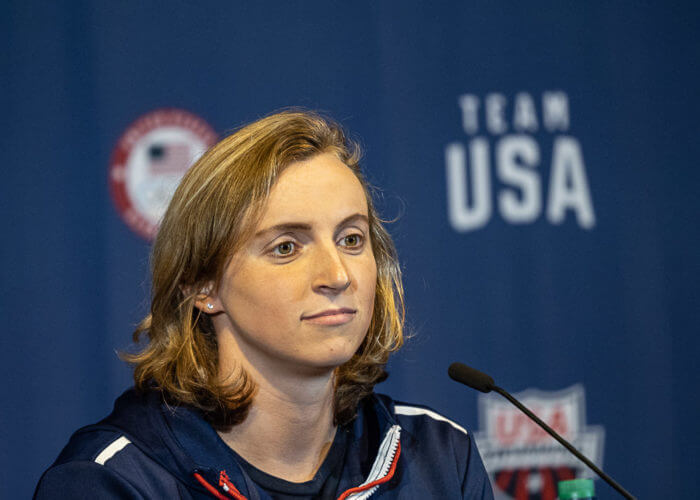
Photo Courtesy: Peter H. Bick
Like Janet Evans, there were multiple options with Katie Ledecky, but what the American star accomplished in the 800 freestyle at the 2016 Olympics in Rio de Janeiro received the nod. As part of her 200-400-800 freestyle sweep, Ledecky blasted the opposition over 16 laps, her margin of victory over Great Britain’s Jazz Carlin an almost unfathomable 11-plus seconds.
To put the swim into further perspective, Ledecky produced the equivalent of back-to-back 4:02s in the 400 freestyle. More, the next-fastest performer in history, Canada’s Summer McIntosh at 8:09.86, is more than five seconds shy of what Ledecky registered in South America.
MEN
Johnny Weissmuller – 100 Freestyle (1922) – 58.6
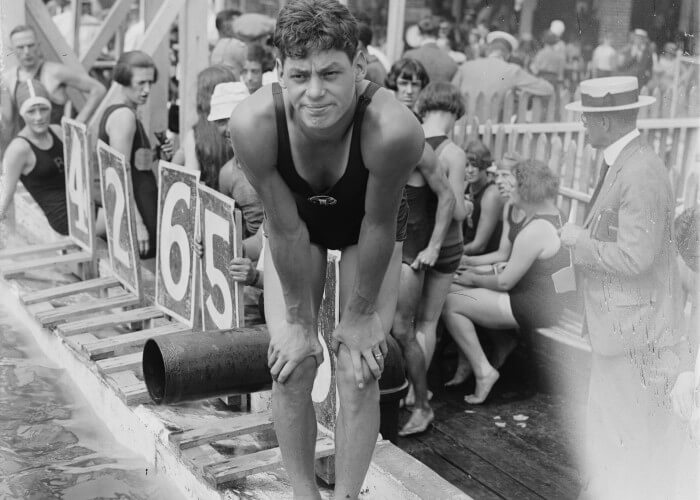
Johnny Weissmuller – Photo Courtesy: ISHOF
Not yet a household name in the pool or on the silver screen, Johnny Weissmuller became the first swimmer to break the minute barrier in the 100-meter freestyle in 1922. And he didn’t just dip under the 60 seconds, he emphatically moved into a new realm. Racing in Alameda, Calif., Weissmuller turned in a time of 58.6. It was an indicator of the greatness to come.
Following his breakthrough and barrier-breaking performance, Weissmuller became a decorated Olympic champion, winning the 100 freestyle at the 1924 and 1928 Games. He took the world record in the event down to 57.4 in 1924, and it wasn’t until a decade later that the standard was lowered, an indication of Weissmuller’s prodigious talent. Of course, his days as a swimming star were followed by years as an icon in movies as Tarzan.
Ian Thorpe – 400 Freestyle (2002) – 3:40.08
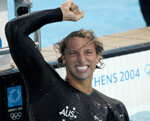
Ian Thorpe, Athens 2004 victory – Photo Courtesy: Delly Carr
From an early age, Ian Thorpe was pegged for stardom, and the Australian absolutely lived up to the vast expectations placed on his shoulders. At the 2002 Commonwealth Games in Manchester, England, Thorpe uncorked a time in the 400 freestyle that could easily remain the world record. Thorpe’s swim of 3:40.08 is just .01 off the world record in the event, and that global standard of 3:40.07 by Germany’s Paul Biedermann in 2009 was fueled by a now-banned supersuit.
With that effort, Thorpe would have won gold at the 2020 Olympics by more than three seconds, proof of the swim’s ahead-of-its-time status. In interviews, Thorpe has admitted regret about the performance, stating that he conserved some energy during the race to ensure he remained fresh for the duration of the Commonwealth Games.
Michael Phelps – 400 I.M. (2008) – 4:03.84
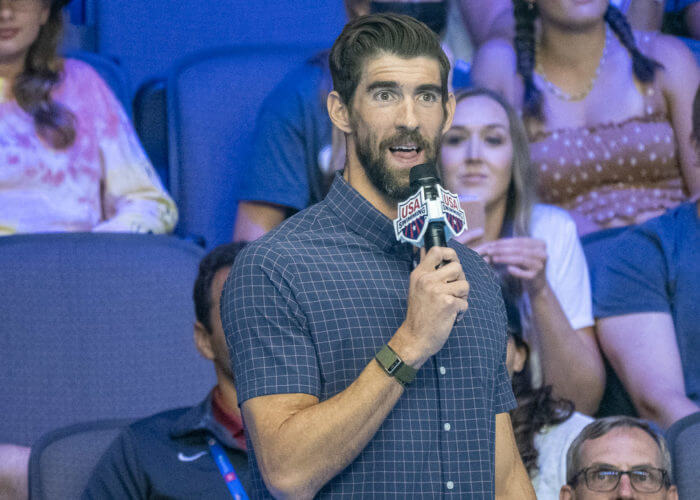
Photo Courtesy: Peter H. Bick
With 28 Olympic medals to his name, Michael Phelps is the easy choice as the greatest swimmer in history, and his last world record was a lock for inclusion. At the 2008 Olympics in Beijing, where Phelps collected a record eight gold medals, he started his march toward history in style with a victory and world mark in the 400 individual medley. When Phelps touched the wall in 4:03.84, it was clear a special week awaited.
It took 15 years for the record to go down, thanks to Frenchman Leon Marchand and his 4:02.50 effort at the 2023 World Championships in Fukuoka. Because Phelps excelled at all strokes, it is appropriate for this record to be featured. Phelps first set the world record in the 400 medley in 2002, meaning he held the standard for two decades and longer than any individual has continuously owned any world mark.
Adam Peaty – 100 Breaststroke (2019) – 56.88
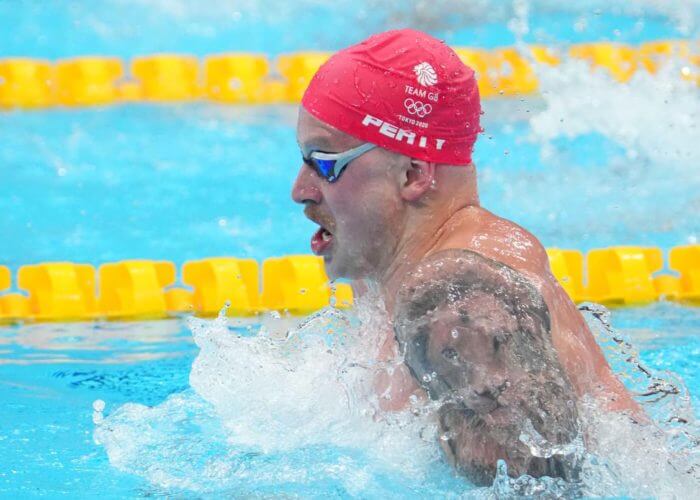
Photo Courtesy: Robert Hanashiro — USA Today Sports
There have been 28 sub-58 performances in the history of the 100 breaststroke. Great Britain’s Adam Peaty has accounted for 21. There has been one sub-57 mark, and it was the 56.88 that Peaty popped to win gold at the 2019 World Championships. The closest anyone has come to Peaty’s world record, other than Peaty himself, are the dual 57.69s of China’s Qin Haiyang, set at the 2023 World Champs and 2023 World Cup in Berlin.
Peaty has raced in his own pool for the majority of his career, the clock serving as his biggest foe. When the British star dipped under 57 seconds at the World Champs, he took the event to a place that – at one time – was considered impossible to visit. But Peaty and longtime coach Mel Marshall had established Project 57, and all it took to achieve history was an athlete-coach partnership based on belief.
All commentaries are the opinion of the author and do not necessarily reflect the views of Swimming World Magazine nor its staff.
